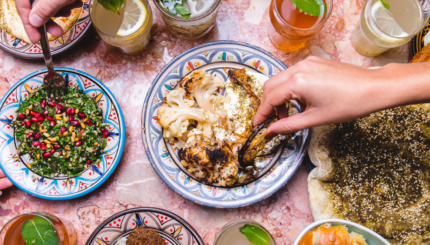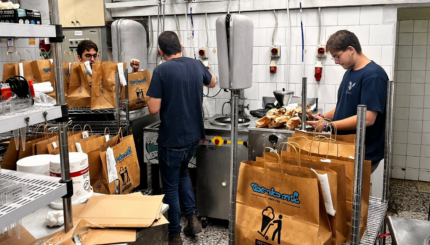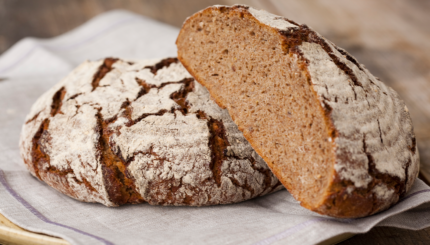The realization suddenly dawned on me at perhaps the most inappropriate of times. I was at the mourning gathering for Jamal Abu Awwad, whose younger brothers Ali and Khaled, are respectively the co-founder and the co-director of Roots/Shorashim/Judur, the Israeli Palestinian grassroots initiative for understanding, nonviolence, and transformation.
We talked about Jamal, who had died in Jordan just the day before, but the majority of the conversation focused on the extended Abu Awwad clan, something like 22,000 people, spread across the world but especially in Jordan and in a few towns in the Hebron area, among them Beit Ummar. Beit Ummar is only a few minutes drive from my home in Gush Etzion. I know a number of members of the family who reside there. They are some of our dearest partners in the efforts of Roots-Shorashim-Judur, to bring some measure of reconciliation to the local peoples of the area and to provide a foundation of trust upon which can be built a future peace agreement. A few of them I count as close friends.
The family originated in the village of Qubeiba. Back in 1948, there were about 1,400 inhabitants of Qubeiba, just about all of them members of the extended Abu Awwad clan. The area, about 24 kilometers west and slightly north of Hebron, was allotted to the Arab State under the 1947 UN partition plan.
As Khaled begin to tell us the story, Ali reminded us that there are many details that we will never know. Their father saw the whole thing but could never recount his experiences. The trauma was too much for him.
At the end of 1948, while Israel’s War of Independence was still raging, the Egyptian army stationed one of its units on a hill overlooking the village. The fledgling Israeli Army approached from the other side, leaving the population of Qubeiba in the middle. The Israeli army distributed leaflets to the villagers with an ultimatum: prevail upon the Egyptians to abandon their positions and leave – or else. Showing that they meant business, the Israelis murdered 16 of the inhabitants of a neighboring village and threw their bodies down a local well. The villagers, fearing for their lives, begged the soldiers of the Egyptian garrison to comply. The Egyptians replied that they could not move without orders from above. Then two young Muslim young women disappeared, never to be heard from again. The people of Qubeiba understood that the Israelis had abducted them as a sign of worse things to come. The villagers felt humiliated by such base behavior, and they were terrified.
The Israeli army started to shell the village. There were not more than three firearms for the whole populace. One man went up with his weapon to the minaret of the local mosque to try to defend the village. It was hopeless. They all fled, never to return.
They made the trek eastward, towards the Hebron hills, and came to Idhna and Tarqumiyah. Later some of the family made their way to Beit Ummar and others eventually settled in Jordan. They began to scatter far and wide. Refugees. Living with the memories.
Khaled told us about the family lands. All lost. Today Moshav Lachish sits where the village once stood. All that is left of Qubeiba are rows of cacti and a handful of ancient olive trees. One 85-year-old uncle, who was born there and who spent his early years in the family’s ancestral village, is the last living link with the past. All the others are gone. But the memories live on.
And then it dawned on me. The people with whom we are making peace in Roots/Shorashim/Judur are not just refugees. They are survivors. Their trauma is still raw, passed down from father to son, from mother to daughter. Just like us.
I once did an Israeli television interview in which I mentioned the one-sided, skewed perspective that many of us have concerning our roots and our history in Gush Etzion over the course of the last 90 years. I suggested that we have to go beyond seeing this as a zero-sum game between the forces of good and the forces of evil. We must recognize the humanity and the pain on the other side.
I hit a raw nerve. Grandchildren of some of those killed by the Arabs in the Kfar Etzion massacre of 1948, on the eve of the declaration of the state, accused me of desecrating the memory of the dead, who died so that we could live in the land. They were completely gripped by their anger and their trauma. Reconciliation was too much for them. I understood. It was too hard.
For the Abu Awwad family, it is also hard. Just as hard. And it is just as hard for thousands and thousands of other Palestinians who lost loved ones and lands, and a heritage of hundreds of years.
Yes, it is hard to go beyond the pain. It is almost impossible. But the Abu Awwad family is doing it, as are so many others. Reconciliation is possible.



